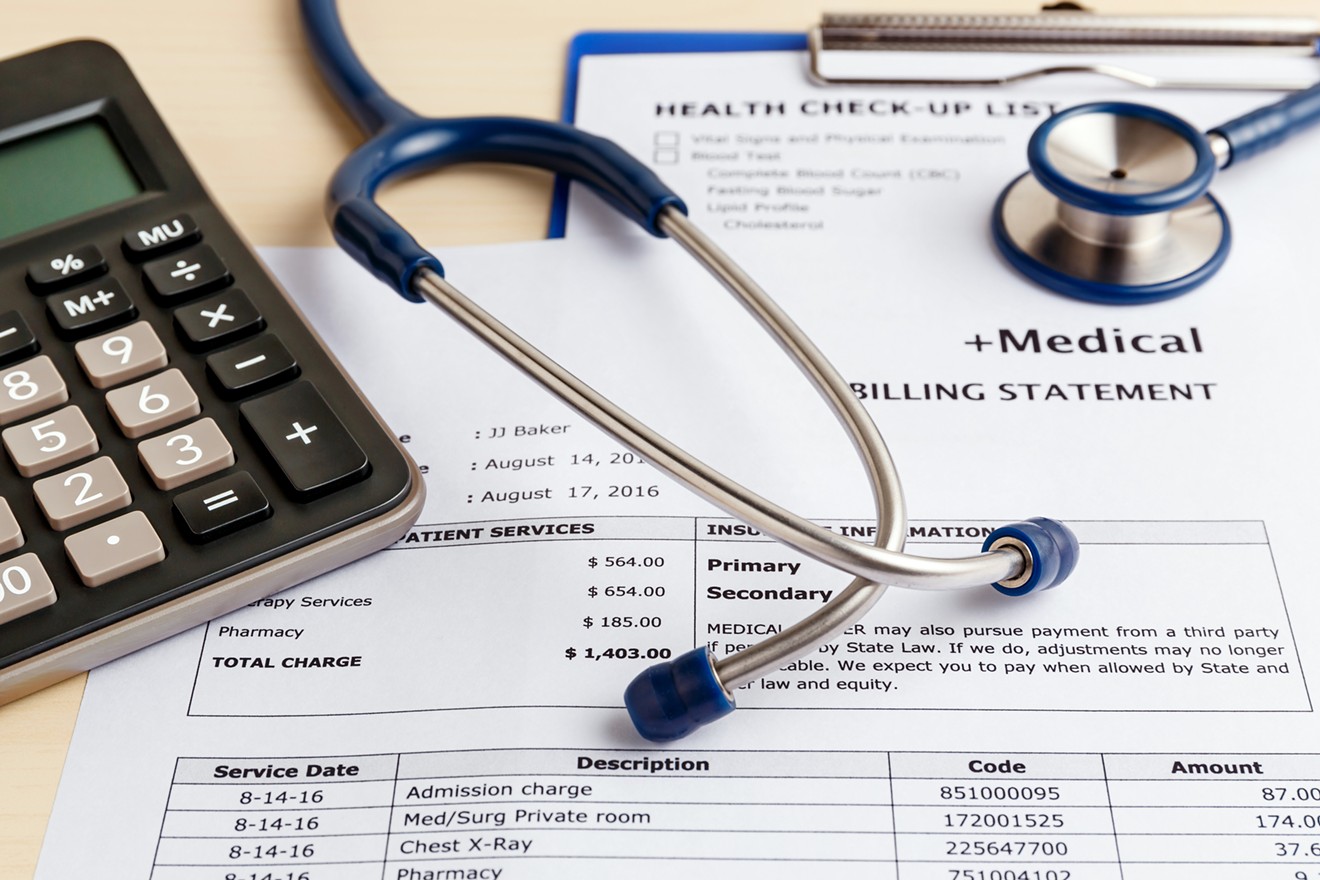That’s the conclusion of a new report released Wednesday by the Center for Public Policy Priorities, a left-leaning think tank. It found that 29% of Texans in neighborhoods of color have medical debt that has been sent to collections, compared with only 23% in white neighborhoods.
This is because people of color are more likely to be uninsured, said the study’s author, Jonathan Lewis. Dallas County, where the rate is three times higher among Hispanics, has one of the most extreme disparities.
“That discrepancy alone really blew me away,” he said.
Lewis said the reasons behind this are not entirely clear, though he offered several hypotheses. A lack of documentation and a shift in the service industry away from full-time employment have left many Hispanics without health benefits.
And for those who go to the federal marketplace to purchase private plans, Dallas’ high cost of living puts premiums out of reach.
Living in Texas certainly doesn’t make it any easier. It’s one of only 14 states to not take advantage of a provision in the Affordable Care Act that allowed states to expand Medicaid to cover more low-income families. In doing so, Texas left over $100 billion in federal aid on the table.A 2016 survey by the Kaiser Family Foundation found that a third of people who had difficulty paying their medical bills were unable to afford essentials like food, heat or housing as a result.
tweet this
Texas leads a coalition of states that are suing the federal government on the grounds that the law is unconstitutional.
Meanwhile, the CPPP has launched a campaign with dozens of other faith-based and advocacy organizations to lobby the state to expand Medicaid and address the dismal insurance rate — the lowest in the nation. The percentage of Texans without insurance is nearly double the national average.
In total, their study found, nearly 4.3 million Texans with credit reports have medical debt in collections.
As a result, studies show, they often sacrifice basic necessities. A 2016 survey by the Kaiser Family Foundation found that a third of people who had difficulty paying their medical bills were unable to afford essentials like food, heat or housing as a result.
The situation has led to some creative solutions. Lake Pointe Church raised money to pay off thousands of North Texas families’ medical bills — wiping out over $2 million in unpaid debt. Letters to the families announcing their good fortune went out on Tuesday.
It’s part of a nationwide movement to buy medical bills at pennies on the dollar from bill collectors and then shred them. A spokesperson for RIP Medical Debt, a New York nonprofit that pioneered the strategy and directed the church’s donations, said it has eliminated more than half a billion dollars in debt over the last five years.
Giovanni Valderas, a board member of the North Texas nonprofit EASL, which gives grants to struggling artists, ticked a dozen friends off the top of his head who he knew were struggling with unpaid medical bills. Their stories often pop up on his social media feeds.
“It’s heartbreaking,” he said. “I think it’s important for the city to understand that these working-class individuals need advocates more than anyone else, because we keep the city running."












